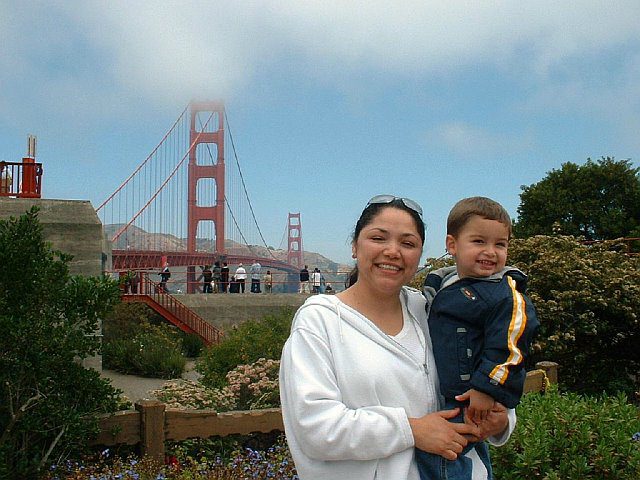The recently deceased Reverend Jerry Falwell once said, “The idea that religion and politics don’t mix was invented by the Devil to keep Christians from running their own country.”
Can personal religious beliefs such as those Falwell expressed over his lifetime serve as a justifiable mechanism for discrimination? Few legal questions cut closer to the heart of today’s pressing debates about LGBT marriage and family rights. The complicated relationship between private religious belief and public discrimination will be examined in “Voices of Pride,” the special 15th anniversary Pride edition of In the Life, the LGBT television newsmagazine, to air on June 21.
The episode, “A Quest for Gabriel,” tells the riveting story of Guadalupe “Lupita” Benitez, and her life partner, Joanne Clark, two California women whose desire to start a family developed into a protracted and costly battle.
Benitez turned to the North Coast Women’s Care Medical Group in 1999 because it was the only service provider offering infertility treatments covered by her insurance plan. She disclosed her sexual orientation during preliminary visits with her doctor there. When it gradually became apparent that her efforts at self-insemination at home were inadequate and she would need medically assisted insemination, the doctor refused to perform the intrauterine insemination procedure on the basis of personal religious beliefs. She later approached another doctor at North Coast, who also refused to perform the procedure and cited religious beliefs.
Under California civil rights law, doctors cannot discriminate against patients because of their sexual orientation. Benitez’s doctors, however, argue that federal and state constitutions allow them to conscientiously object to medical services based on personal religious beliefs. Benitez contacted Lambda Legal, and the case, Benitez v North Coast Women’s Care Medical Group, is now before the California state supreme court. Its outcome will likely set a national precedent about whether doctors, and others who provide services to the public, may refuse to treat LGBT the same as others based on religious belief.
Benitez and Clark eventually paid thousands of dollars for out-of-network doctors to help them with the insemination procedures they needed. Today, they are raising three children.
Tune in to In the Life on June 21 on PBS to see more of their story.


What Do You Think?